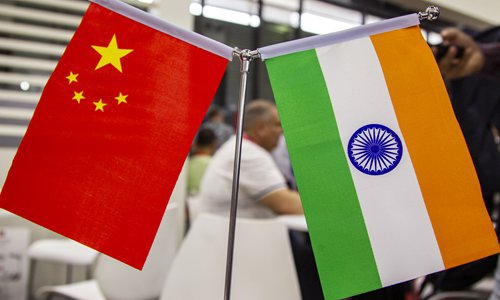India's new foreign investment rule should not constitute restriction for Chinese capital

Photo: VCG
Uncertainty over Chinese investment to India has increased after the latter amended its foreign direct investment policy on Saturday.One of the major changes is that all foreign investments from countries sharing a boundary with India will be required to get approval from the Indian government. In other words, Chinese investment in India may be subject to tighter scrutiny that was only applied to Pakistan or Bangladesh previously.
While the Department for Promotion of Industry and Internal Trade said the new rule is aimed at "curbing opportunistic takeovers of Indian companies" against the backdrop of the coronavirus, it is too early to predict its impact on Chinese investment given the unclear implementation details. Still we hope the new change won't become a real blockage on future Chinese investment in India.
If anything, China and India could have more direct consultations on mutual investment. India has been witnessing growing investment from China, especially from the Chinese private-sector, in the Indian market in recent years. Chinese tech companies like Alibaba and Xiaomi have all invested heavily in Indian startups.
By March 2020, China's total current and planned investment in India had exceeded $26 billion, a significant rise from the level of around $1.6 billion in 2014, according to a recent report by Brookings.
There is a need for India to relax its restrictions and create more favorable conditions for Chinese investments, particularly when it comes to the manufacturing sector. This is because it is now uncertain whether Japanese and South Korean companies will expand their investment in India. Due to the unexpected coronavirus crisis, many global manufacturers now need to adjust their industrial chain in the face of the rising uncertainties in the world economy. In this context, Chinese manufacturing investment and its technology transfer are both what India needs most right now.
Moreover, the pandemic hasn't changed Chinese companies' ambition to invest and develop abroad. So we still hope the two countries could reach a common understanding on facilitating investment activities.
In the wake of the pandemic, there will be certain changes happening to global capital investment, especially in the Asia-Pacific region. On the track to be the first country to recover from the epidemic outbreak, China is gearing up for attracting more foreign investment with its new foreign investment law, which is very competitive in terms of its attractiveness to foreign investors. In this sense, the future of the Indian manufacturing will largely depend on its own choice. If India blocks the entry of Chinese capital, it will probably risk missing a good development opportunity for its manufacturing sector.



